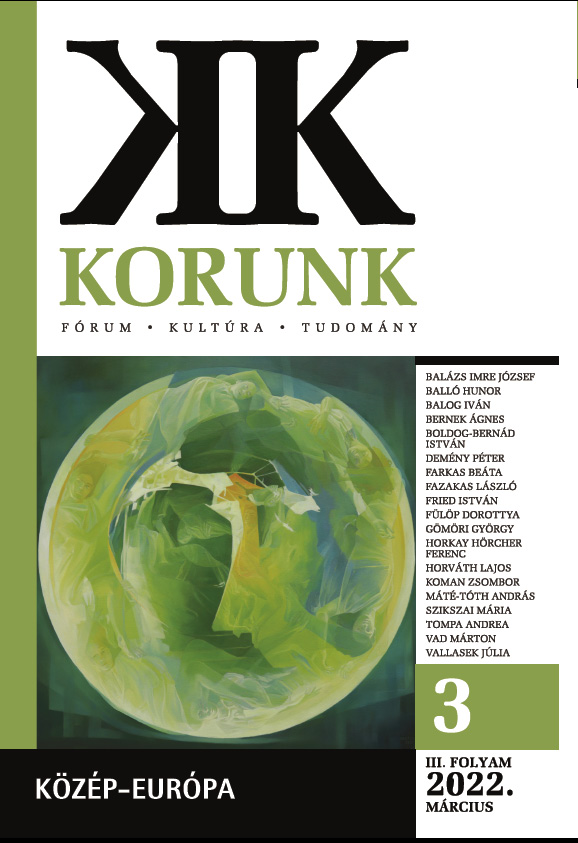Közép-Európa büszkesége és balítélete. Eszme- és irodalomtörténeti megfontolások
The Pride and Prejudice of Central Europe: Reflections from the Perspective of Intellectual and Literary History
Author(s): Ferenc Horkay-HörcherSubject(s): Cultural history, Studies of Literature, Recent History (1900 till today)
Published by: Korunk Baráti Társaság
Keywords: Central Europe; regime change; Stalin; Hitler; István Bibó; Jenő Szűcs; Milan Kundera; Miklós Mészöly
Summary/Abstract: This essay is to show that both in the Hungarian public debate during the years of the regime change and in the European debates in the decade leading to the fall of the Iron Curtain, the concept of Central Europe, as the other of the West, that simply cannot be set aside, played an important role. It argues that while no analysis of the tragedies of 20th century can excuse the mistaken decisions of the leaders of the political communities of Central Europe, the fact that Europe had to collaborate with Stalin to defend the continent against Hitler’s Germany played a key role in their tragic fate. The essay starts with an overview of the idea of a historical middle region in Europe between the West and the East, in the works of the Hungarian thinker István Bibó and the historian Jenő Szűcs. This is followed by a reconstruction of the Western debate about Central Europe after the publication of Kundera. Next comes a normative account of the relationship of Western and Central Europe. Finally, the work of Miklós Mészöly, a Hungarian writer of the mid-20th century will be referred to, as an original contributor to the debate, who made sense of the term Central Europe both in his prose work, and in his essay writing.
Journal: Korunk
- Issue Year: 2022
- Issue No: 03
- Page Range: 62-68
- Page Count: 7
- Language: Hungarian

